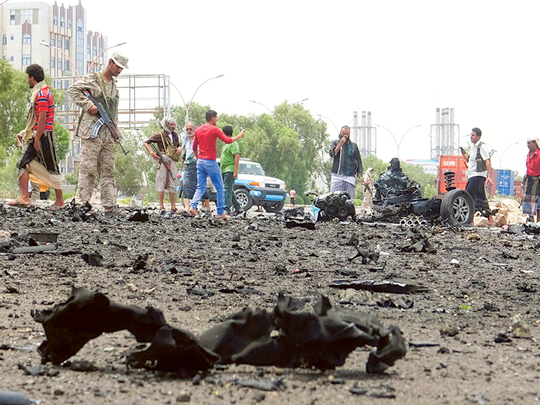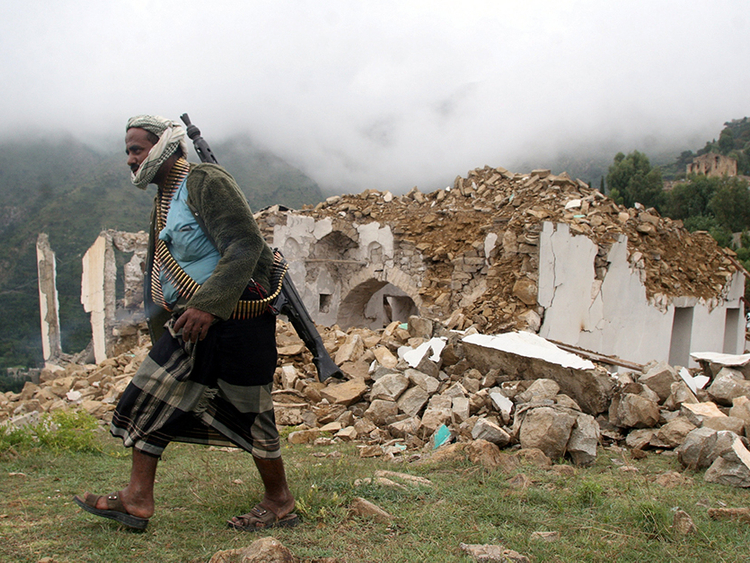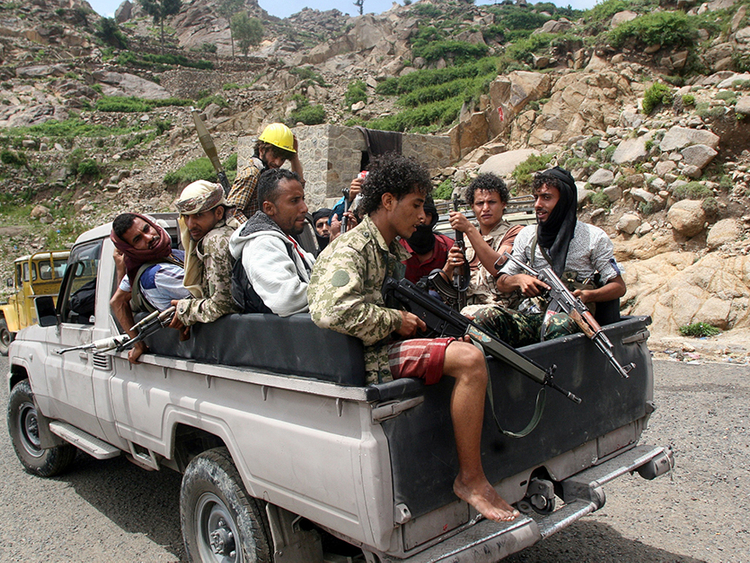
Al Mukalla: Analysts following the war in Yemen say that the announcement of the government to accept a UN-proposed peace agreement will not not translate to a reduction of violence on the battlefield.
“Despite its high cost, the miltiary option remains the most attractive one for the Yemeni government to end the Al Houthi coup,” Abdullah Nasher, a political analysts told Gulf News.
He said while Al Houthis and their ally, ousted president Ali Abdullah Saleh, would likely sign the deal to end the conflict, they will be slow to follow through with implementation.
On Sunday, Yemeni president Abd Rabbo Mansour Hadi ordered his team in Kuwait to unconditionally sign the UN-proposed peace agreement to end the two-year conflict following an Al Houthi takeover in September 2014.
“After discussing the agreement with his aides, president Hadi told us to endorse the agreement on condition the other side [Al Houthis and ousted president supporters] sign it by August 7,” an official from the government delegation told Gulf News on Sunday.
In an attempt to salvage the faltering peace talks, the UN special envoy to Yemen, Esmail Ould Shaikh Ahmad presented a peace propsoal which would see Al Houthis withdraw from Sana’a, Taiz, and Hodieda in the first phase.
Then Hadi would form a security committee to handle the issue of disarmament and withdrawing from other cities in 45 days.
The proposed agreement also obliges the Al Houthis and Saleh to withdraw their demand for an inclusive political council.
The rebels will have to lift their siege on Taiz and other cities and release prisoners of war.
The Yemeni government issued a statement following Hadi’s meeting with his aides saying that it agreed to the proposal as a way to “stop the bloodshed, end the violence and restore the security of the state”.
Al Houthis did not outright reject the proposal but rebel spokesman Mohammad Abdul Salam said described it as a “media stunt aimed at undermining current consultations”.
The Iran-backed rebel group reiterrated their demand for a “new harmonic power in the form of an executive body”. They say the executive body should be formed before they pull out of any cities.
“Sharing power with Al Houthis is just stalling the problem and setting the stage for the next round of bloody conflict,” Nasher said.
A government delegation official privy to the Kuwait talks spoke to Gulf News on the condition of anonymity saying that Al Houthis were not serious about the proposal.
“They read it quickly and returned it to the UN envoy at the same meeting,” he said. “They are refusing to hand over arms before establishing a power-sharing government,” he added.
If Al Houthis accept the deal, both delegations will reconvene to iron out the details about the security committee.
The government delegation said that they received calls from ambassadors from 18 countries involved in the peace talks thanking them for endorsing the proposal.
The talks in Kuwait, which began on April 21, have so far made no major breakthrough.
Ould Shaikh Ahmad on Saturday managed to extend discussions for a week after the government delegation said it was leaving, and submitted the peace deal draft to both sides.













